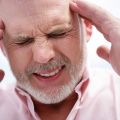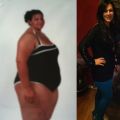5 Eating Habits to Avoid If You Have Painful Headaches

Common sense tells us to go to the medicine cabinet when a headache starts to pierce. There is no shortage of synthetic solutions to head pain, which makes sense given that up to 45 million Americans suffer from it each year, indicating a high demand for relief.
However, in our haste to alleviate the discomfort, we may be passing up an opportunity to identify the source of the problem and then try to solve it naturally. While a variety of factors can contribute to headaches, diet is unquestionably important. An unbalanced diet can cause or exacerbate headaches. Power, of course, is the inverse of knowledge. We can potentially avoid pain by being mindful of our nutrition.
However, that doesn’t mean that your diet will cure your headaches. So, it’s essential to talk to your headache specialist to find out the right treatment.
1. Skipping meals
Foregoing a meal is sometimes just a byproduct of a hectic day. However, missing a meal may result in a throbbing temple.
When you skip meals, your blood sugar usually drops or crashes. When your blood sugar is low, you may experience headaches, dizziness, nausea, and even light-headedness.
To avoid low blood sugar and headaches, try eating a series of small meals and snacks throughout the day. Anything high in fiber and protein will help to keep your blood sugar stable.
2. Not eating protein at meals and snacks
One way to help maintain blood sugar stability is to incorporate protein into meals and snacks, even in small amounts.
When you eat carbohydrates on their own (for example, fruit, cereal, bagels, and granola bars), your blood sugar tends to rise and then drop significantly due to a lack of protein. The blood sugar drop, like skipping meals, can quickly cause a headache.
Try incorporating protein into your diet in any way you can, such as by spreading peanut butter on toast, eating nuts with your granola bars, or adding Greek yogurt to your cereal. If you skip protein, you increase your chances of experiencing headaches.
3. Removing or drastically limiting carbohydrates
That being said, the solution is not to follow a protein-only diet. The body functions best when nutrients are balanced. While we should avoid relying solely on carbohydrates, severely restricting them can result in headaches.
Consider including more whole-grain carbs, which are high in fiber, vitamins, minerals, and antioxidants. All of these benefit overall health by increasing satiety and preventing hunger pangs and the headaches accompanying them.
4. Eating sugary foods by themselves
Sugar consumption results in a blood sugar spike, which, as we all know, can cause a headache when those levels fall again.
Suppose you experience a sugar spike and an increase in energy after consuming a sugary food or beverage. You can count on a blood sugar drop and an energy slump as well. This can cause headaches and fatigue, and even worse, it makes you crave more sugar.
Of course, the simplest solution is to avoid foods with a lot of added sugar. If that isn't possible (the birthday cake looks delicious), one way to avoid the side effects is to consume protein at the same time.
5. Drinking coffee without eating
We've all heard about the various types of caffeine-induced headaches. There's the too-much-coffee headache, the too-little-coffee headache, and the coffee headache that comes too late at night.
Caffeine affects everyone differently, but because it is a central nervous stimulant, it can often leave people with a headache and jittery if consumed on an empty stomach. In addition, caffeine can often amplify the effect of low blood sugar caused by not eating, leaving you feeling worse and possibly with a pounding headache.
To avoid caffeine-induced headaches, drink coffee only after eating a balanced meal high in fiber and, you guessed it, protein.
You could have your morning cup of coffee with eggs and whole-grain toast or oatmeal and Greek yogurt. If you want to snack on coffee, try it with ricotta cheese, berries, or energy bites made with oats, nut butter, nuts, seeds, and honey.
Other articles and publications:
Articles and publications of other companies:
- +1 (646) 270-9836
- Long Island City
- grantny.com










